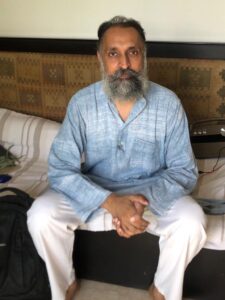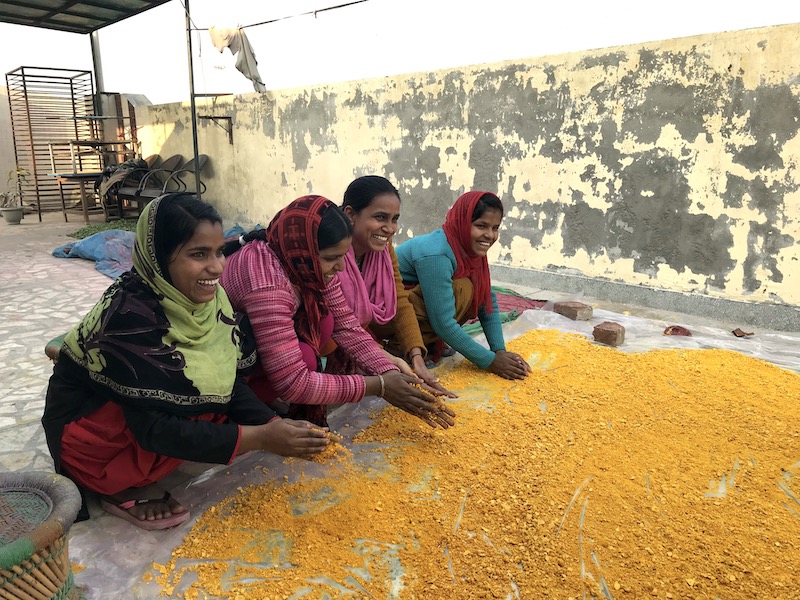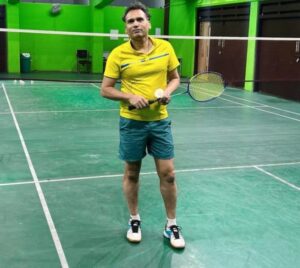What started as a philanthropic initiative by Chandigarh-based Anurag Kashyap to provide shakti (energy) to people and children to better their quality of lives, eventually led the Shakti Foundation to empower the marginalized sections of society like never before.
A registered not-for-profit entity, the Shakti Foundation, under the proficient guidance of Kashyap, has made an indispensable impact on waste management, alternative livelihoods, financial inclusion, remedial education and caring for children with special needs.
In an exclusive interview with this visionary socialpreneur, we explore more about his humble journey.

Tell us about your family and your days in Chandigarh. Where have you studied?
Chandigarh is home! My grandparents were probably amongst the earlier settlers in the city. My father served as Chief Secretary, Government of Punjab, and my mother retired as the head of the Botany Department, Government Home Science College, Chandigarh.
I studied at St. John’s High School (all boys), and then at YPS, Mohali (co-ed!), followed by a couple of years in DAV College, Chandigarh. This was followed by six years in Panjab University-four years in the Department of Chemical Engineering (a tough four years, I might add) and two years in the University Business School, where I managed to complete my MBA.
I never planned on leaving Chandigarh. But like they say, “When God wants to laugh, He asks the man to plan!” After working for seven years in different companies in Chandigarh, I moved to Delhi in 2003.
Tell us about your professional life and how did you venture into a completely different arena when you could have opted for a top position in the corporate world?
I started my career in 1996 selling paging services (does anyone remember that?), moved on to internet services and then mobile telephony. While I did reasonably well in these companies, it wasn’t satisfying. I yearned to do something more meaningful, and I worked for a leading infrastructure consulting organization for another eight years designing PPP (Public Private Partnership) projects for various state Governments and the Union Government.
Finally, in 2011 I got the opportunity to work in the CSR department of the same company, and I jumped right into it and spent seven wonderful years meeting amazing people, and understanding the needs of local communities and implementing some innovative social interventions.
It was a fantastic learning experience and I learnt a lot from colleagues and partners, though in retrospect, I feel I should have left earlier. I left my employment in 2018 to immerse myself full-time into a Foundation that I had set up in 2010.
Tell us about your project – Shakti Foundation and how is it helping the underprivileged and women?
Shakti Foundation is a registered not-for-profit entity incorporated to provide shakti (energy) to people and children to better their quality of lives. Shakti Foundation focuses on waste management, alternative livelihoods, financial inclusion, remedial education and caring for children with special needs. Relief work, though not a separate function, forms a vital part of Shakti’s activities (as a response to COVID, we raised funds and distributed food rations for more than 5000 families and migrant workers in April-July).
Having closely engaged with communities and their problems at the grass-root level at one end, and with corporates and donors and their compliance requirements at the other end, we at Shakti, have an understanding of the language spoken in villages and slums as well as in board rooms. As such we are able to present feasible solutions that are both practical and impactful.
Besides catering to children with special needs, we also came face to face with the omnipresent, yet invisible waste-pickers, a neglected community. We started working at providing them with alternative means of livelihoods, besides helping their children with education.
Gulmeher is a social entrepreneurship initiative that aims at Recycling, Reducing, Reusing, Repairing, Re-gifting and Recovering waste. Ghazipur is one of Delhi’s oldest landfills and features in the world’s 50 largest landfills. Gulmeher (literally, “blessings of the flowers”) was born out of a desire to improve the livelihoods and quality of life of the 350 waste-picker households in the slum, focused on initiating alternative income generation.
What are the products you are making and how do you sustain your business which is primarily a CSR initiative?
Gulmeher was intended to eventually be a self-sustainable entity with the shareholders (erstwhile waste-pickers, who we would rather call green workers) appointing staff like a CEO, marketing manager, production manager etc. to manage the entity. We recognize that that objective is still some distance away, but we’re striving towards it.
Currently, the revenues of Gulmeher are from the sale of festival products like natural Holi colours, earthen diyas, rakhis, stationery items like calendars, notebooks, pens, and eco-friendly gifting items like customized boxes, bags, portraits etc.
A group of women have been trained on stitching machines, and they are capable of making quality cloth bags, masks (we distributed nearly 30,000 masks to frontline workers in May-June and sold another 40,000).
Another group of women is making recycled paper bags for large retail stores to replace plastic bags. Last year, more than 150,000 paper bags were ordered by a leading store, Relay, at all the leading airports in the country, which helped immensely.
The majority of the sales are to corporates and bulk purchase, but Gulmeher products are also available on e-commerce platforms like Amazon and also in a few retail stores in Delhi, Goa, Bangalore.
Unfortunately, the sales are insufficient to meet the costs of Gulmeher, which is why the Shakti Foundation supports the initiative-both managerially as well as financially. Marketing and forward linkages are the most important aspect, and any support in this regard would be highly appreciated.
How do you plan to expand your initiative in other parts of the country?
We are cognizant of the fact that our efforts are just a drop in the ocean, and that a great deal needs to be done for a very large population-even if we were to limit ourselves only to the areas that we have set out for ourselves. Some of our plans for this year (and the coming year) are to:
- Establish at least two new centres for children with special needs-Chandigarh would be the first place outside Delhi that we would start.
- Foray into waste collection/segregation. The objective would be two-fold-environmental as well as social/economic to benefit the waste-pickers
- Start decentralized composting facilities. Again, Chandigarh would be a focus area.
- Organize waste-pickers under the Shakti/Gulmeher initiative and establish resource centres in different parts of the country where the focus is not just on livelihoods, but also on financial inclusion, health, education (for their children).







Comments are closed.